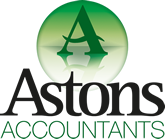Cars & Tax
Home / Cars & Tax
Self-Employed & Partnerships
If you use a car for business, some (or all) of the expenses can be claimed as a deduction from profit, effectively obtaining tax relief.
Alternatively, you can charge your business a mileage charge (there are established, fixed rates that are acceptable to the tax authorities) for miles travelled on business.
You can choose which method you adopt, so different strategies suit different people in different situations. The best tactic is to keep a log of business miles and discuss which is the best method for claiming the expenses with Astons Accountants when you bring your records in.
Companies
The above does apply to companies, but putting a vehicle through a company can attract extra tax (on the individual) as the company is effectively providing a “benefit-in-kind” which can generate income tax on a “cash-equivalent-value” based on the value of the car (when new) and a factor determined by the CO2 emission rating. You are bound to have heard people talking about the tax they pay on their car benefits.
Therefore, for companies, it is usually better to provide a car personally and charge the business for miles covered on business. Keeping a business mileage log is always a good habit to get into.
General
No two people and no two situations are the same, so you will hear all sorts of things said about the best way of organising your vehicle and motor expenses, but you should get advice about what suits you from Astons Accountants, so you can make the right decision at the outset.
You will always want to minimise your tax relating to the car, so if you want to know more or talk about your specific situation, call us and we will talk it through with you.

